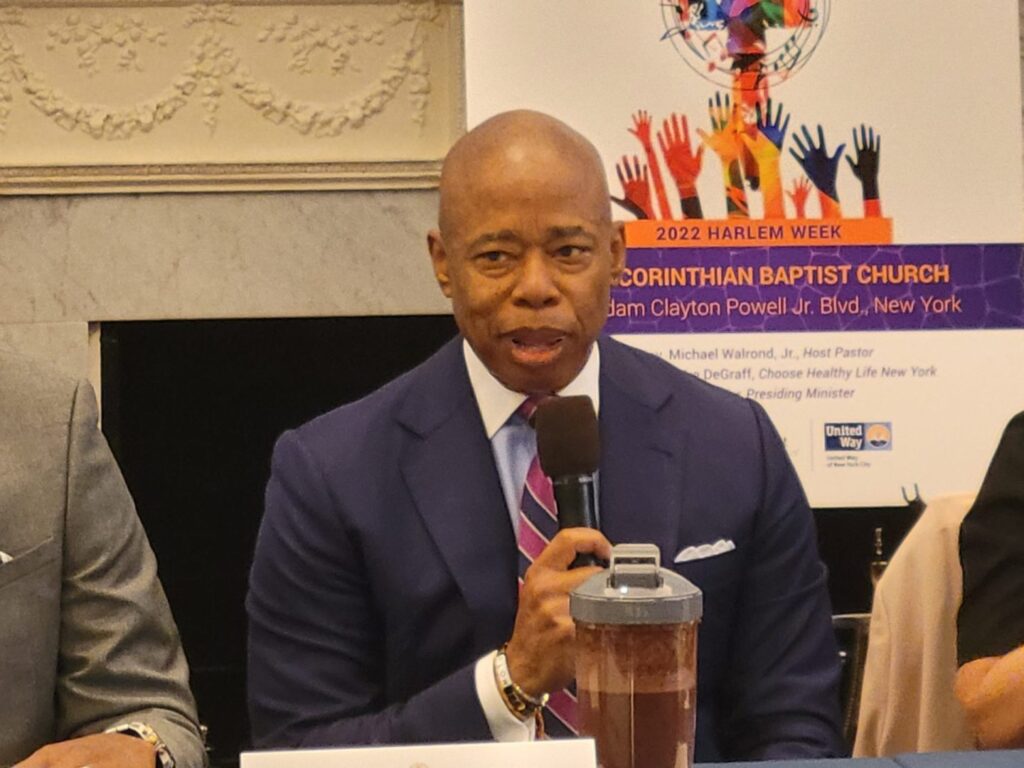New York City Mayor Eric Adams faces a political crisis following his indictment on federal charges including bribery and illegal campaign contributions from foreign sources. The allegations raise questions about his ability to govern effectively while many in the African American community rally around Adams advocating for presumption of innocence.
During a recent ceremony at Riverside Church honoring David Dinkins New York City’s first African American mayor Adams arrived late. The mood shifted as he now faces serious legal challenges that could impact his political future.
Adams has publicly maintained his innocence. During his arraignment he stated “I am not guilty” a sentiment resonating with many who have followed his career closely.
Public Advocate Jumaane Williams voiced support for Adams emphasizing federal officials’ responsibility to substantiate their claims. Williams stated “It is the mayor’s obligation to prove to New Yorkers that there is a real plan and path to govern the city effectively and regain trust and his time to show that plan is rapidly running out.”
Reverend Al Sharpton expressed concern about rushing to judgment regarding Adams. He stressed that the mayor should only be evaluated based on the outcome of a potential trial. Sharpton plans to convene a meeting with Black leaders to discuss the charges’ implications and the way forward.
New York City Council Speaker Adrienne Adams stated she will continue monitoring the situation closely. She urged the mayor to consider whether he can fully focus on New Yorkers’ needs during this tumultuous time.
Prominent community figures including Rev. Herbert Daughtry and Hazel Dukes have publicly stood by Adams emphasizing their long-standing relationships with him. Dukes 92 who has known Adams for over 40 years remarked “He’s going to have his day in court and we’re going to stand by him.”
Discussions about a potential autobiography featuring Adams’ life story have resurfaced. The narrative would encompass his journey from a victim of police violence to becoming a respected leader in law enforcement and politics.
The unfolding situation serves as a reminder of the complexities of political leadership particularly within the African American community. As calls for his resignation grow louder many advocate for a measured approach respecting the legal process.
Legal experts caution that federal indictments often lead to convictions emphasizing the seriousness of the charges against Adams. They note the potential long-term implications for New York City’s governance and Adams’ political career.
The indictment has sparked debate about campaign finance reform and the influence of foreign money in U.S. elections. Some political analysts suggest this case could lead to broader scrutiny of campaign practices across the country.
Adams’ supporters argue that his track record of public service should be considered alongside the current allegations. They point to his efforts in police reform economic development and pandemic response as evidence of his commitment to the city.
Critics however contend that the charges if proven true represent a severe breach of public trust. They argue that effective governance requires full transparency and adherence to ethical standards.
The case has drawn national attention highlighting the challenges faced by high-profile political figures especially those from minority communities. Some observers note the added scrutiny often placed on African American leaders in similar situations.
As the legal process unfolds New York City faces the challenge of maintaining stability in its government. Deputy mayors and other city officials may take on more prominent roles to ensure continuity of essential services.
The outcome of this case could have far-reaching implications for New York City politics potentially reshaping the landscape for future elections and public trust in local government.



